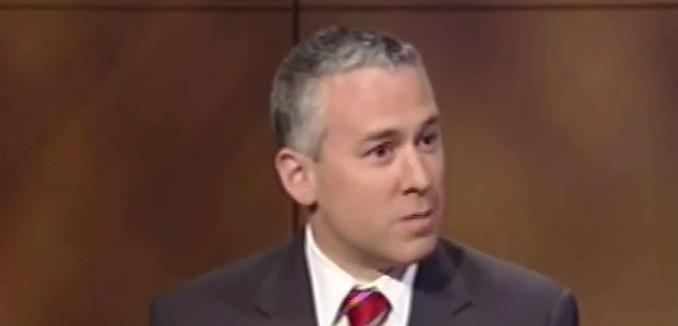In testimony before a House of Representatives hearing Wednesday, former Treasury Department official Jonathan Schanzer warned that the sanctions relief being offered to Iran as part of ongoing nuclear negotiations threatens to make “much more terror finance” available to terror groups, The Hill reported yesterday.
A former Treasury Department official raised concerns on Wednesday about terrorists obtaining some of the international community’s financing to Iran.
The U.S. is ceding $11.9 billion in cash transfers to Iran between November 2013 and June 31 as the Obama administration looks to finalize a nuclear deal with Tehran.
“I am concerned that some of these funds have already found their way to terrorist groups, and that much more terror finance could be on the way,” Jonathan Schanzer, a former Treasury counterterrorism analyst, told lawmakers at a hearing.
Schanzer, currently the vice-president of research for the Foundation for Defense of Democracies, made his comments at a hearing of the House Financial Services Committee’s terrorist financing task force.
In his prepared testimony (.pdf) Schanzer provided greater detail.
Mr. Chairman, the number one terrorist sponsoring country in the world is the Islamic Republic of Iran. The U.S. Department of State labeled Iran a State Sponsor of Terror in 1984. Three decades later, the designation is still apt. The regime backs a wide range of terrorist groups, including Hezbollah, Palestinian Islamic Jihad, Hamas, the Houthi rebels in Yemen, Shi’ite militias in Iraq, and militants in Afghanistan. Iran also maintains its own terrorism apparatus: the Islamic Revolutionary Guard Corps (IRGC). In recent years, Iran’s ability to support the IRGC and these other terror proxies has diminished somewhat, thanks to the sanctions that the United States and its allies have put in place to block Iran’s illicit financial activities and to inhibit its attempts to build a nuclear weapon. Most of the “nuclear sanctions” are not purely nuclear sanctions, but hybrid sanctions linked to Iran’s support for terrorism, proliferation, and human rights violations.
Now, however, with the Joint Comprehensive Plan of Action (JCPOA) framework announced on April 2, and with a final deal expected by the June 30 deadline, the White House appears poised to remove many of those sanctions.
As it stands already, between November 2013 (when the Joint Plan of Action was announced) and the June 30 deadline, the international community will have ceded some $12 billion to Iran in cash transfers. Moreover, this does not include direct sanctions relief and tens of billions of dollars in indirect economic gains. I am concerned that some of these funds have already found their way to terrorist groups, and that much more terror finance could be on the way. After a final nuclear deal, an estimated $100 billion that has been held in semi-restricted accounts in China, India, Japan, South Korea, and Turkey likely will be remitted directly back to Iran over time. Moreover, news reports now suggest that the White House plans to give as much as $50 billion to Iran as an upfront “signing bonus.”
The White House has unfortunately limited the terms of the agreement with Iran to narrow nuclear parameters, despite Iran’s extensive record of destabilizing activities throughout the region. This means that while some restrictions will hopefully remain on some Iranian banks involved in terror finance, others will melt away. As a result, Iran’s Supreme Leader, Ali Khamenei, will have greater flexibility to disperse the windfall from the nuclear deal to terrorist groups at his discretion.
Last month Rep. Ed Royce (R – Calif.), the chairman of the House Foreign Affairs Committee, told Eli Lake of Bloomberg View that “every Gulf ambassador predicted” that the freeing up funds to Iran would further destabilize the region.
In addition to freeing up funds to finance Iran’s terror network, the loosening of sanctions has weakened the West’s leverage in the nuclear negotiations with Iran.




